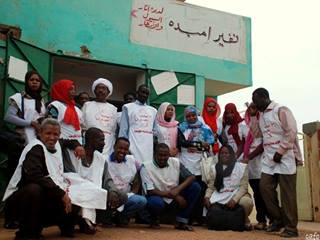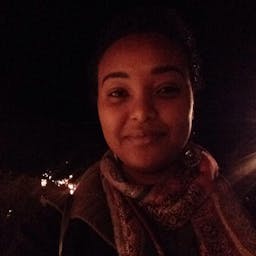Finding hope amidst floods of despair
Jan 21, 2015
Story

"Sudan is still okay" is a phrase I grew up hearing as a Sudanese girl. It is a phrase that has a special place in the minds and hearts of Sudanese people, and it is said each time someone faces dire circumstances and the community surrounds the person in support. It is a thread that weaves hope and unity through a scattered nation.
I questioned the validity of the phrase when I recently witnessed the worst flood to hit Sudan since 1988. Despite the familiarity of the heavy rains during the fall season in Sudan, they reared their unfamiliar head to expose its ugly consequences and disastrous effects. Being far away from it all, in another continent, can never mask the pain I felt seeing images of homes destroyed, lives lost and shattered and children's hopes and dreams washed away. According to a report published by the United Nations Office for the Coordination of Humanitarian Affairs (OCHA), since the beginning of August, more than 530,000 people have been affected by the floods, while at least 74,000 homes have been destroyed. There is a complete lack of proper infrastructure to drain the heavy rains. People literally have to swim across streets, whose features are completely lost, through the mud, and stagnant waters. Women carrying their children on their shoulders through shoulder high waters, holding on to remainders of hope for a better day for their children. Government officials stood idly watching the catastrophe unfold and worsen. No action.
"Who is the alternative?" is well marketed propaganda –– a facade at the forefront of the Sudanese government's greed for power. It’s a question that is echoed among those devoted to the idea that the Sudanese government, despite its almost three decades of failure in leadership, is better than anyone who can possibly take their places, affirming the "better the devil you know" adage. It was used to curb the rising unrest among the people, in an effort to delay the process of change. However, the recent floods in Sudan have not only exposed the poor infrastructure reflecting the well known failure of the government, but also the power of the people to come together, via Nafeer, to lead and help one another.
Nafeer is a word that has flourished among the cultures of Sudan to refer to the gathering of people to support those in need, forming the interconnected social bonds that continue to hold the Sudanese together up to this day. Historically, it originated in the context of battles when people rallied in readiness to fight, but today it rises up again in the context of community volunteerism in a whole new battle: providing relief to the victims of the floods. Nafeer is the name of a youth-led global campaign to gather support and provide relief for people who were affected by the flood. With thousands of volunteers, Nafeer has done all that the government had failed to do in responding to the floods. Whether it is providing health services in response to emerging diseases, or giving food and clothing to families, Nafeer’s work exemplifies the power of people leading and supporting each other. Doubting “the alternative” becomes as fragile as a mud house in the face of flood.
The August flood that has hit Sudan had disastrous effects, as thousands of lives and homes were lost. The survivors were alleviated by the unyielding, committed work of Nafeer volunteers. As the flood waters broke roads in half, separating travelers from destinations, citizens have become separated from the “question of the alternative.” With the mounting backlash against the government for their lack of appropriate response, the answer to the question is becoming clear with an emerging, committed volunteerism, and the leadership of Nafeer. There is a question that I keep asking myself, and I hope with all my heart that the people across Sudan are asking themselves: If this is what they can do when the streets are wet, imagine how far they will go when they are dry? I hope this question will be revisited with a renewed sense of social responsibility and an eye for a new Sudan, where equality and justice and peace take root.
This article is part of a writing assignment for Voices of Our Future a program of World Pulse that provides rigorous digital empowerment and citizen journalism training for grassroots women leaders. World Pulse lifts and unites the voices of women from some of the most unheard regions of the world.




